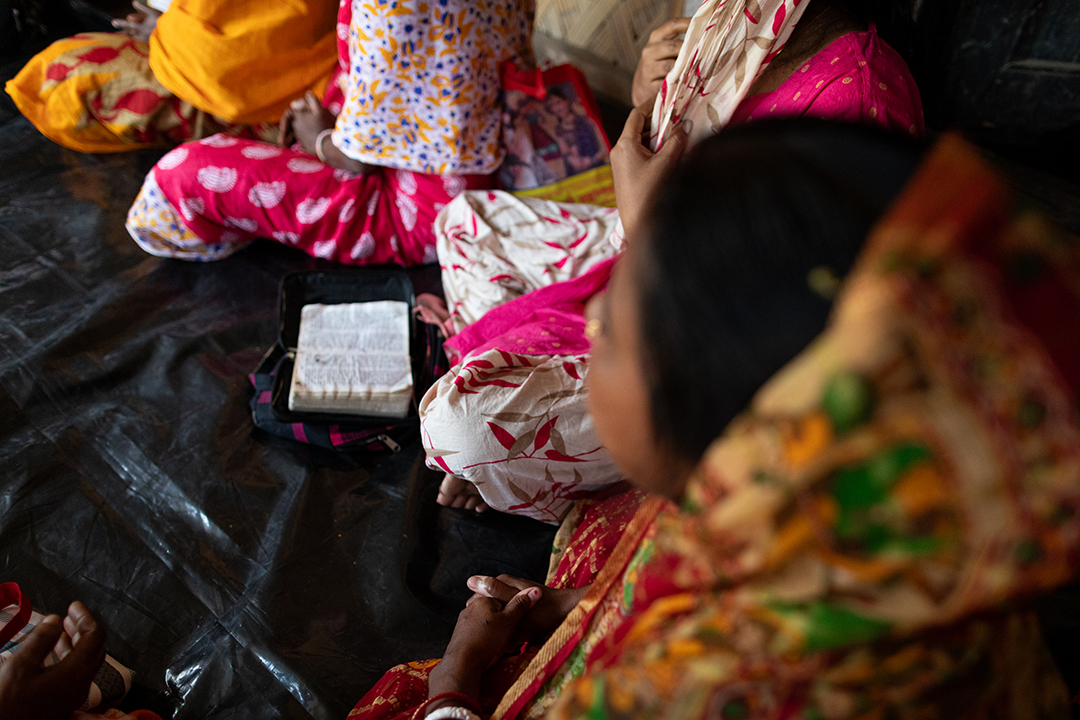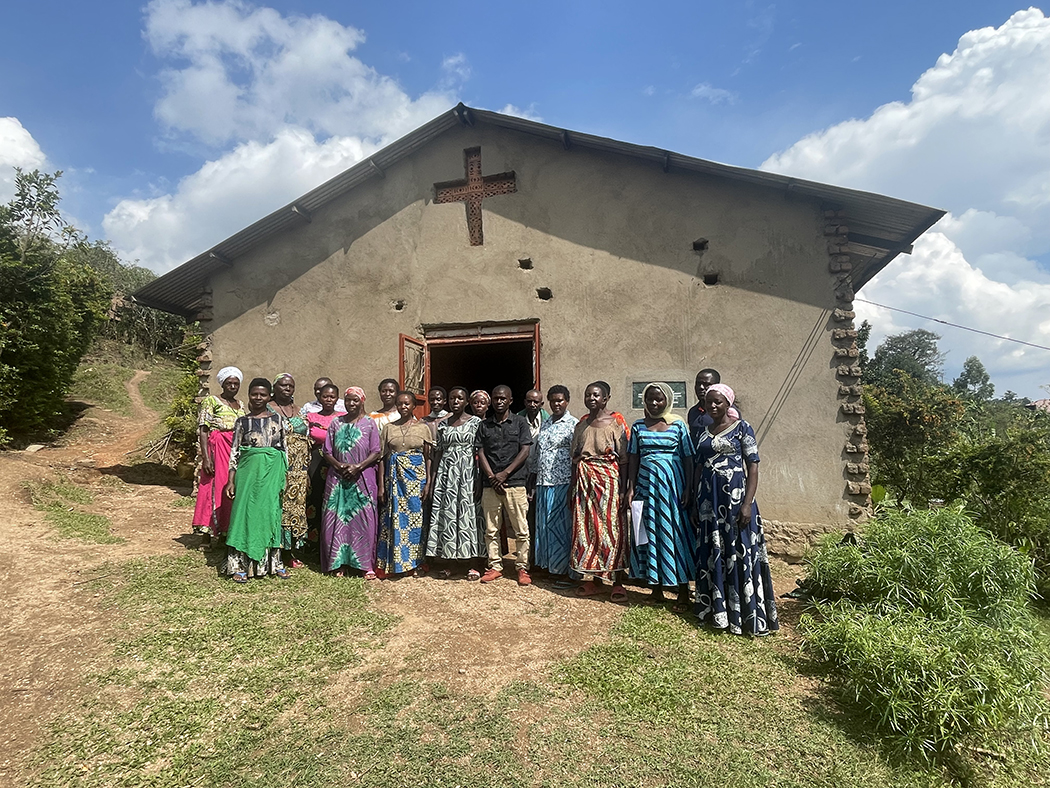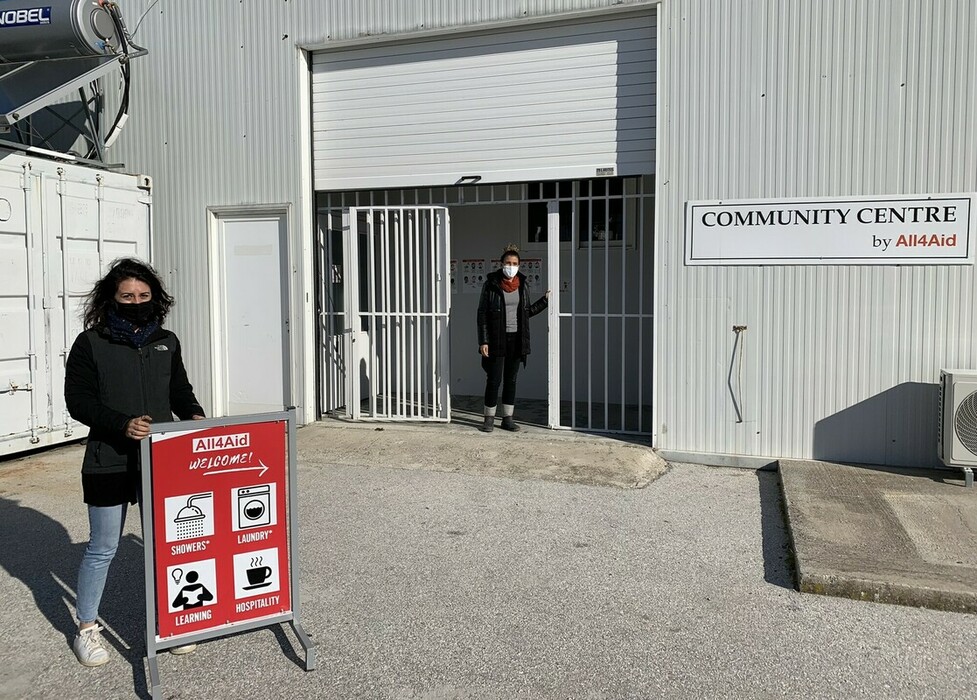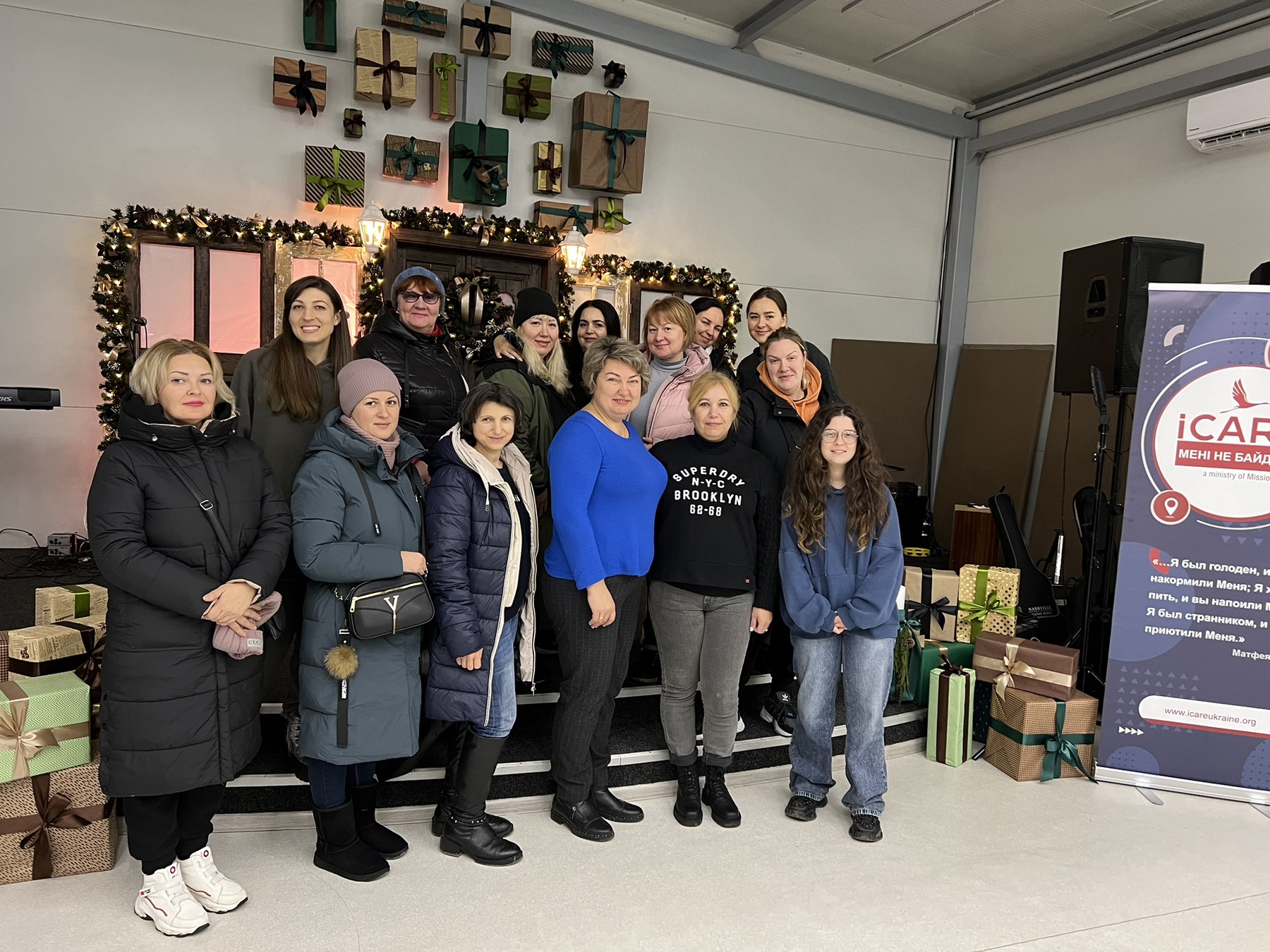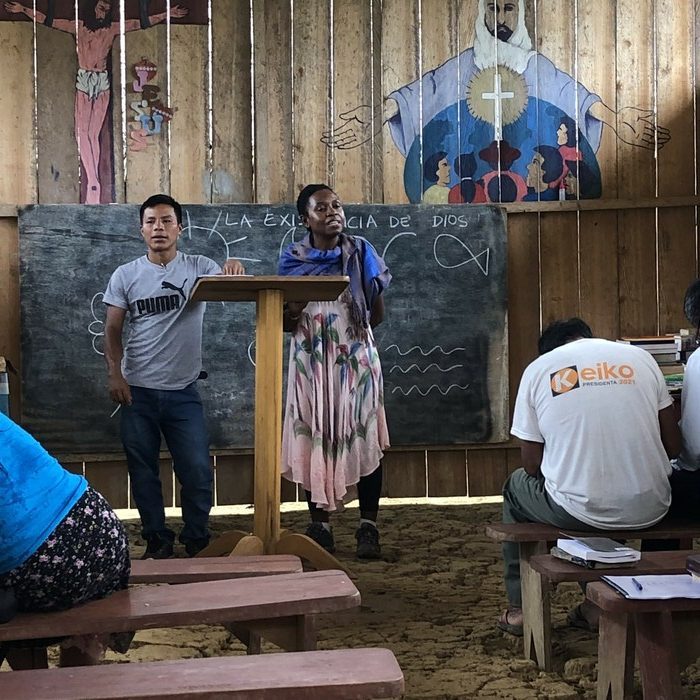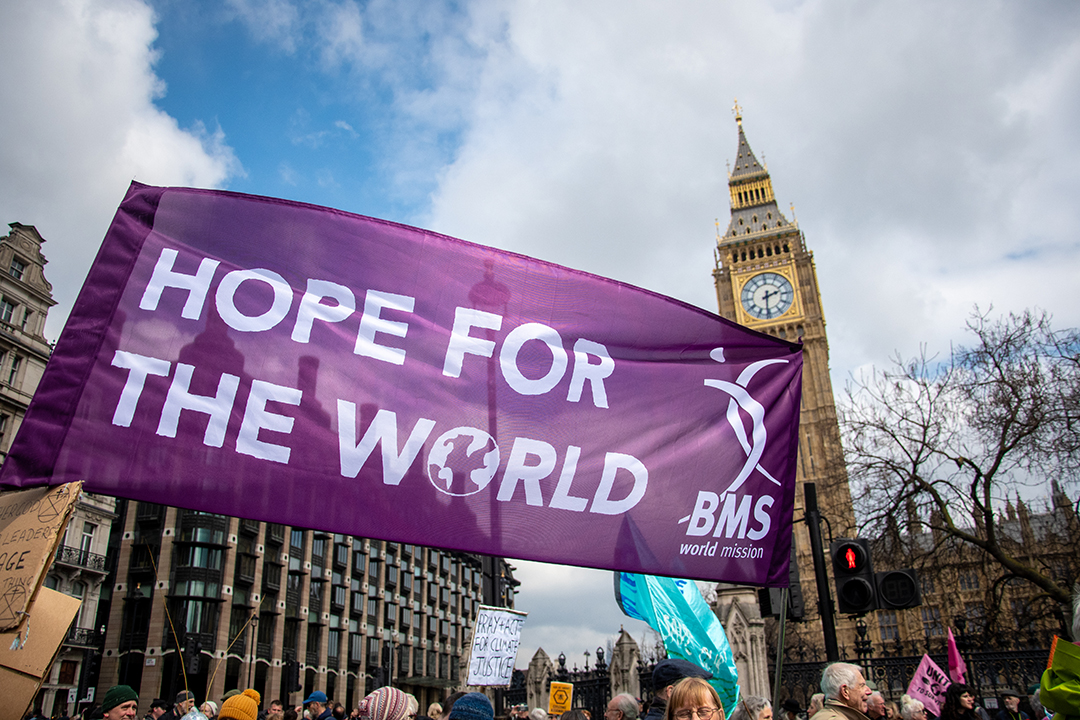Covid and the care home:
A wake-up call for the West
It was reunion day at the Chênes Verts nursing home in the Parisian suburb of Gif-sur-Yvette – a long-awaited moment for residents and their families who had gone two months without any visits. It had taken staff almost three weeks to work out how to safely re-open the doors of the care home in this new world, one governed by Covid-19. But finally, on 11 May 2020, the first three visitors were able to see their loved ones face-to-face, and the emotion was palpable…
BMS World Mission worker Christine Kling has been visiting the Chênes Verts nursing home regularly since becoming a part-time chaplain there in 2017. Amongst her other pastoral responsibilities, she counts her visits to residents in their 70s and 80s, many living with dementia, depression, or other serious health conditions, as an important part of her job. In the West, our interest in nursing homes is likely related to whether we’ve ever visited one, had a relative move in or perhaps worked in the sector. But recently care homes have been front page news, with questions raised over whether they have been woefully underserved by governments in the Coronavirus pandemic.
Refreshingly, Chênes Verts has always been front page news for the residents of Gif-sur-Yvette. “The care home is the only one in the town and everyone has known a relative or a friend staying in it,” says Christine. Many people’s childhood memories include singing Christmas carols to its residents. The care home is at the heart of the community – a rare position for most care homes in Western culture. Christine lists underpaid staff, the difficulties of the job itself: the pain, long hours, night shifts and a lack of recognition as just some of the well-worn issues many Western countries have yet to address. But the arrival of the Coronavirus forces us to confront them.
Indeed, we’ve been required to confront many things this year. And as Chênes Verts prepared to welcome back visitors for the very first time, we could become inured to the talk of strategies, of Personal Protective Equipment (PPE), of five-step plans and coded alert levels. But take a step back, and it’s heartbreaking to think of a world where something as simple as an aged parent being visited by a son or daughter must now be handled like a military operation.
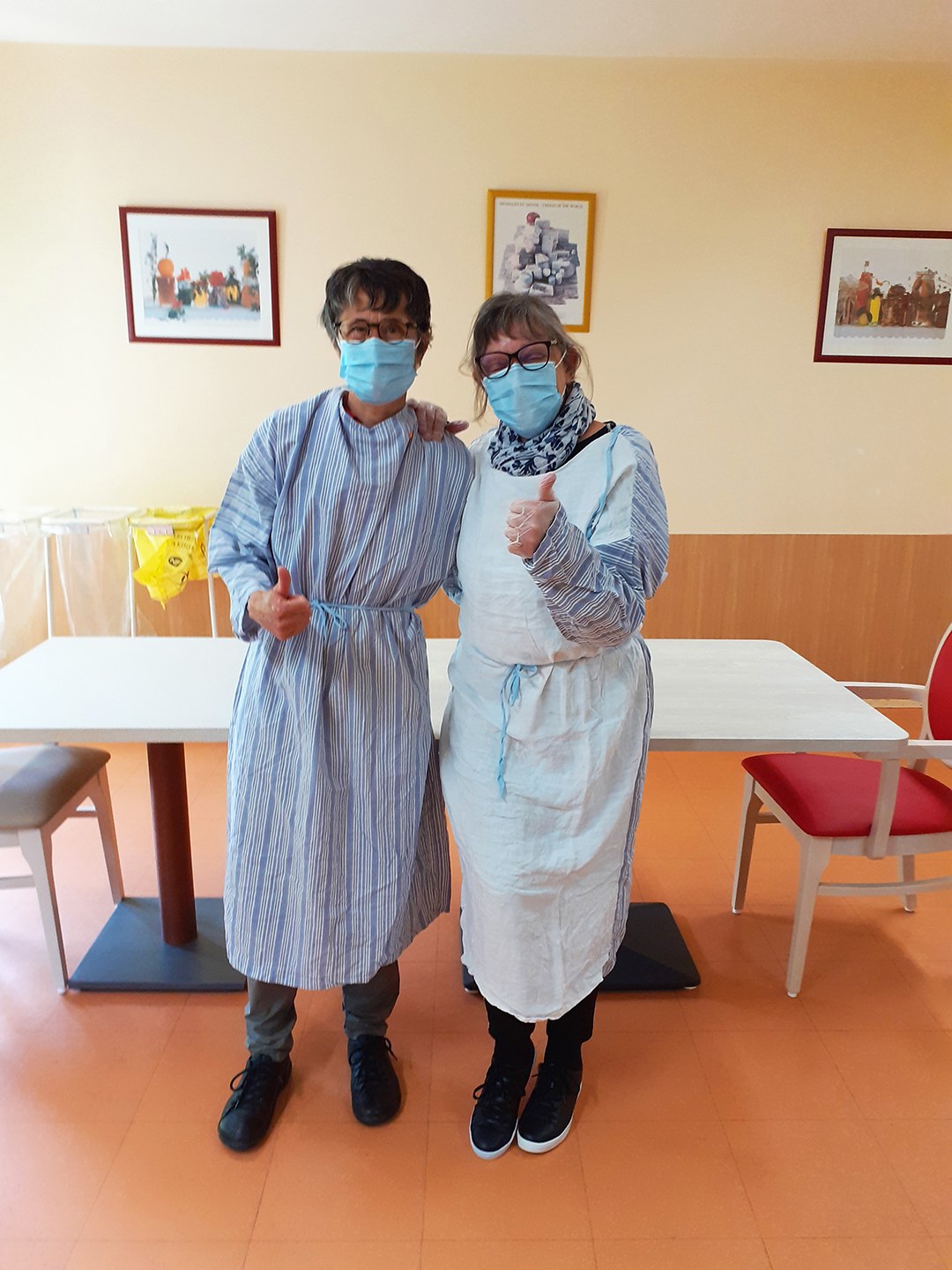
The risks to health of opening Chênes Verts care home back up were high, but the emotional toll of refusing family visits was just as high a price to pay.
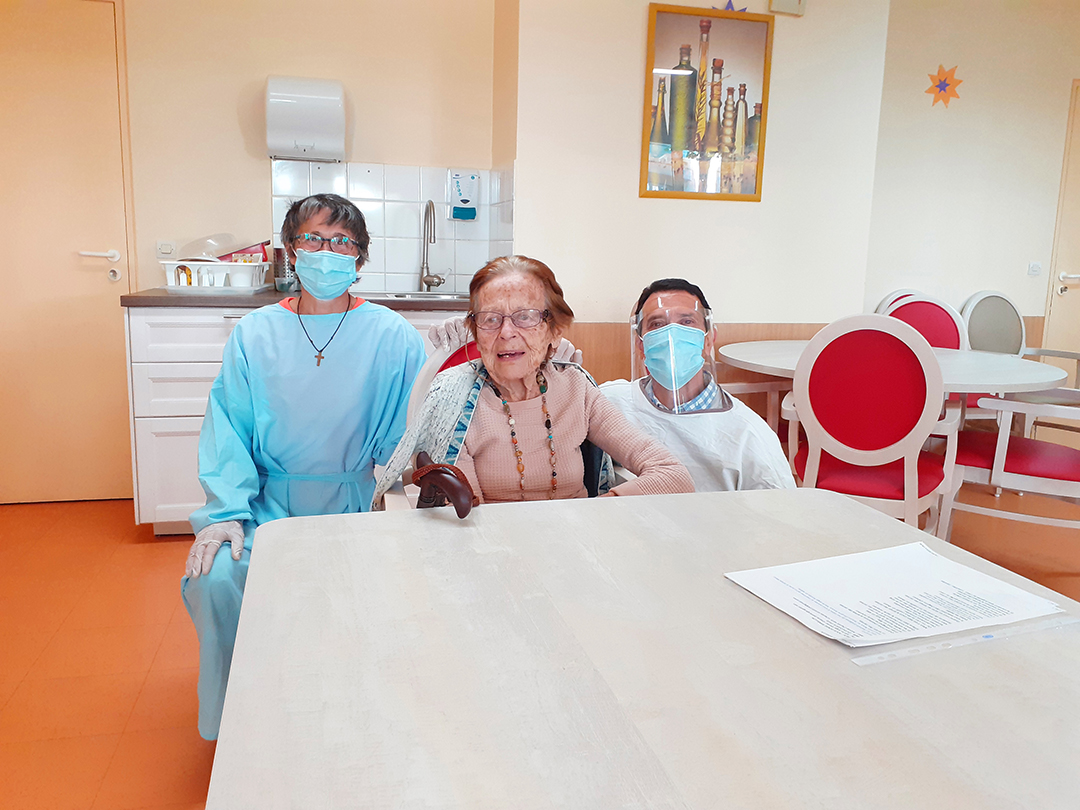
So, on 11 May, visits were by appointment in a dedicated room. Social distancing measures were in place, of course, along with temperature screening and the compulsory wearing of masks. “The elderly residents didn’t always understand why they could not touch their visitor, why it was only one relative at a time and for 30 minutes,” says Christine. “There were expectations and stress from both sides after having waited for so long – a lot of emotions – so we had to be sensitive and caring.”
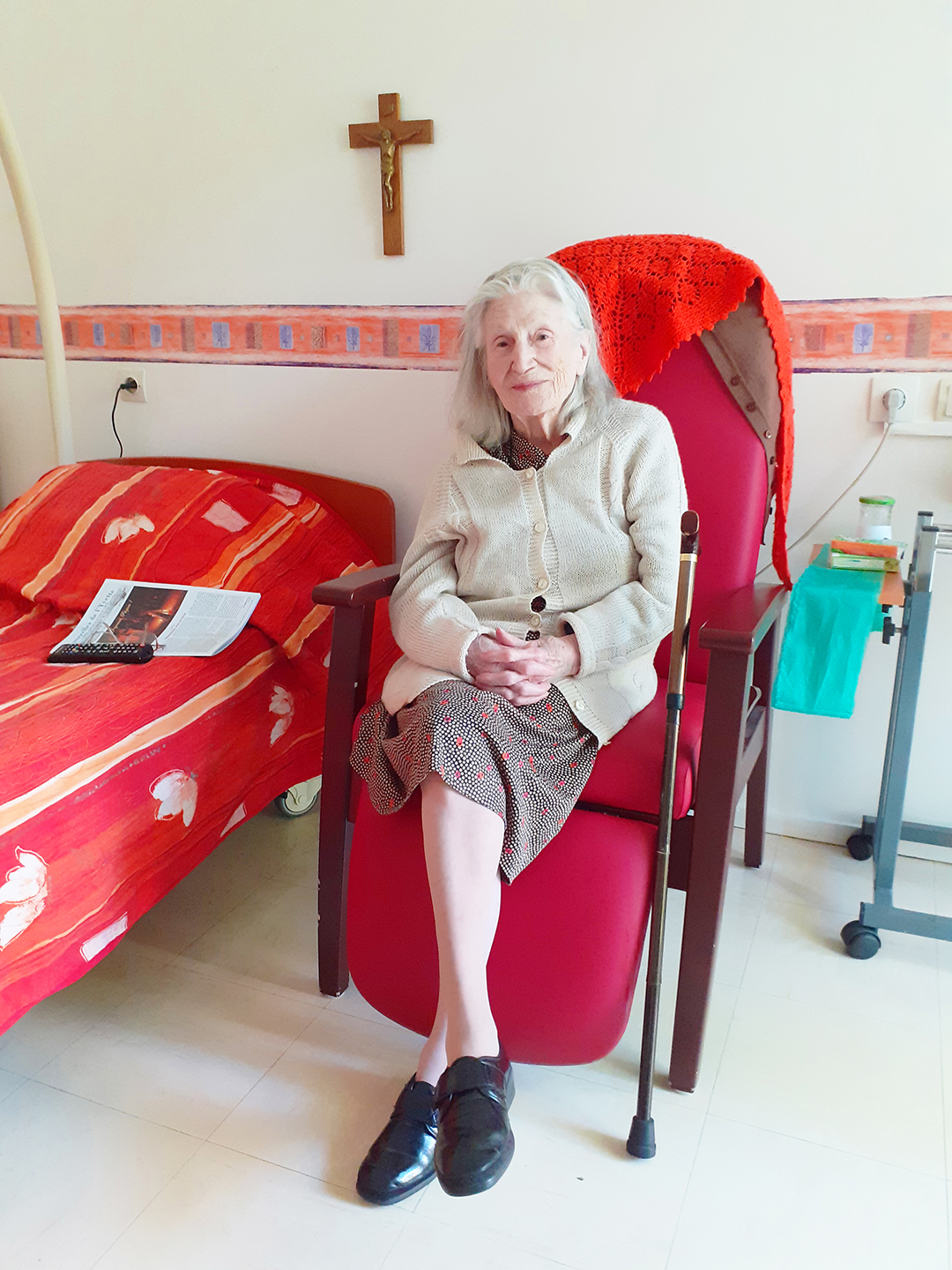
An initial screening test set the opening of Chênes Verts back, as it revealed asymptomatic cases of Covid-19 among residents and staff. Ten of the residents were discovered to have contracted the virus, and devastatingly, three passed away in one weekend. Thankfully, a number of others are on the road to recovery. “Death is very much part of care home life,” says Christine. “Every six months we have a memorial service to remember the ones who left us.” But, in the context of Covid-19, death feels different. “After having fought for two months to keep the residents safe, the staff feel like we’ve lost a battle.”
How does Christine offer up support in such difficult times, and how can we as Christians do the same? “Fear, grief and stress characterise the overall mood in France,” explains Christine. “In a secular country where death has been ‘sanitised’, managed by experts at hospitals, care homes, etc, for many years, this crisis has been some sort of awakening in rediscovering human vulnerability and finitude. For the time being I am listening to the staff and residents when they want to speak, to acknowledge their pain and grief. If people want to pray, I offer prayers.” And as Christians offering comfort in uncertain times, we have the additional promise that we will never be alone.
“The Holy Spirit, the comforter, the helper, is with us always, teaching us how to love others as Jesus loves us,” Christine says. She’s been reading John 14 with her church, and is very aware of both the challenges and opportunities created for Christians in the West by the Coronavirus crisis. “Covid-19 might be the new challenge for the Church to reach out to the ones in need, to dare to care.”
The care home is just one place where Christians can share this love and serve the local community. Indeed, reunion day at Chênes Verts was only possible thanks to the bravery and help of volunteers who stepped in to co-ordinate the visits, sew gowns and gather enough PPE. “The first day of the visits was a very special day. The laughter behind the masks and the sparkling eyes provided moments of happiness but also a little balm for the heart,” says Christine. “When it is possible to come together again, we will remember this day at Chênes Verts.”

Words by Hannah Watson. Inspired by this blog post, written by Christine Kling

